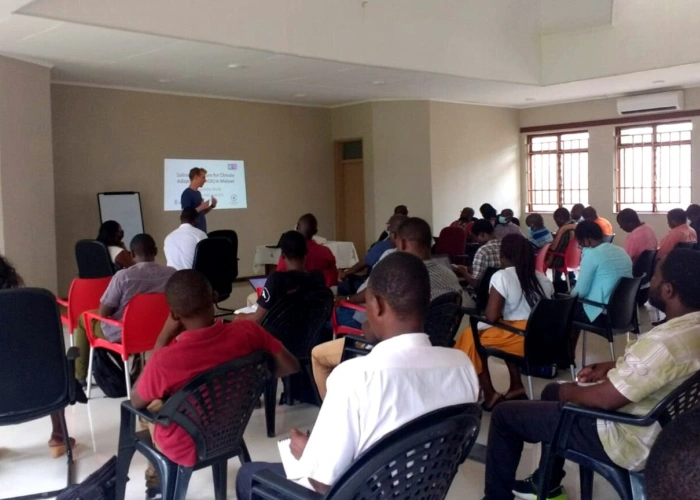Saline Agriculture for Climate Adaptation

For rural communities in Malawi land degradation and the impacts of climate change and natural hazards are key livelihood challenges. The region of Chikwawa is especially prone to environmental strains as it is dryer, lower, and more arid than other regions of the country. Salinity in groundwater and soils threatens the region’s already strained arable land resources and vegetation.
This project will use saline wells to irrigate fields to grow salt tolerant vegetables and supply aquaculture ponds to grow fish. Our innovation restores degraded land, turning salinized soils into highly profitable and healthy ecosystems without using any freshwater. We do this by using saline groundwater from traditional wells and modern boreholes which have become saline over time, or those that have been dug into deposits of saline water. While these ‘saline wells’ may no longer be in use, due to their high salinity levels, this project uses them to build ecosystems-based saltwater farms in which nutritious crops and aquaculture are combined in circular production models.
Saline Agriculture for Climate Adaptation (SACA) in Malawi follows on from projects led by the team in the last two years in countries like Bangladesh and Vietnam which addresses similar threats, and implements innovative land management practices for the integrated restoration of saline wells to restore degraded land, and create invaluable ecosystems that strengthen the climate resilience of rural communities.
This project brings together Challenges Worldwide and Seawater Solutions in a new partnership. Challenges have supported more than 3,000 enterprises, encouraging the development of SME-centred products and services and their work in Malawi includes establishing commercial hubs to better balance supply chains and improve farmers’ conditions.